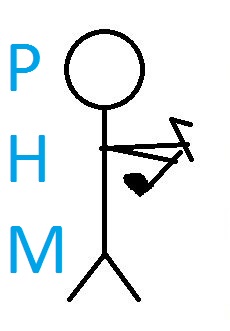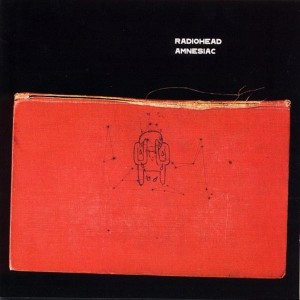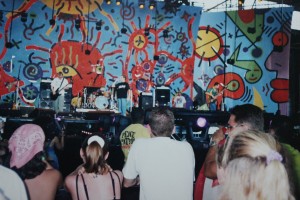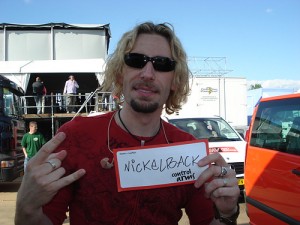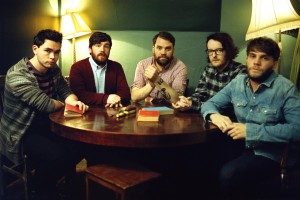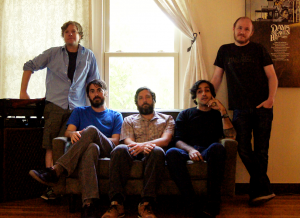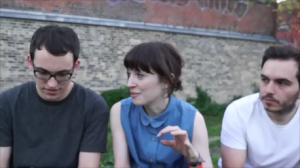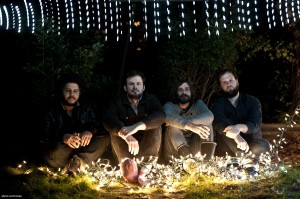Radiohead’s OK Computer: 15 Years Later
In the UK, it was June 16. In North America, July 1. And since I was on vacation, this post is a tad delayed. But…June 16/July 1 marks a very special day for me in music history – the first Milli Vanilli single was released 22 years ago Radiohead’s seminal album, OK Computer was released 15 years ago – June 16, 1997, forever changing the life of this blogger. I was still a teenager, still grasping to the fading alternative and grunge music scene. I was discovering more music, but didn’t really have a favourite album apart from pretty much anything by the Beatles. Then along came OK Computer, blowing me and many critics away.
Radiohead’s OK Computer was the third album from the band from Oxford, England. They are lucky they made it to three. Their first album, Pablo Honey, was relatively average, except for one massive hit – Creep. To many, Radiohead looked like one hit wonders. Their follow up album was the lush and melodic album The Bends. It spawned many hits, such as Fake Plastic Trees, Just, and Street Spirit, and inspired guitar bands such as Coldplay, Travis, and tons of imitators since then.
Based on the evolution from album one to album two, many people thought that their third album would be The Bends Part 2 – after all, this is a band that seemingly managed to pull a miracle out of a hat for album two, after being written off as one hit wonders. Radiohead had found the key to success, and now all they needed to do was duplicate it and cleverly disguise it as an album of new ideas, as so many bands do (see: Oasis).
But the third album was an evolution of Beatles-esque proportions – gone were the catchy and melodic acoustic guitar songs. Bye bye guitars, hello Mellotron, glockenspiel, cello, electronic drums, distorted strings, and other effects. What took the place of the Bends was a complete “album” – 12 brilliant songs, thematically linked, with the perfect sequencing, experimental guitar effects and layers, and Thom Yorke at his lyrical best. What we got was OK Computer.
Radiohead – Paranoid Android
The album was the first album Radiohead did with their now usual producer, Nigel Godrich. The band turned down many offers from other producers to make the album, and the band chose to self-produce it at first, eventually roping in their now longtime producer.
The record label, EMI, wanted Radiohead to make a great album (read: lots of sales), and didn’t give them a deadline for delivering the next album. Rumour has it the label lowered their expectations for sales based on what their heard. They wanted The Bends Part 2 – they got a landmark masterpiece that would give them a band with a career rather than a flash in the pan with sporadic radio hits.
Back when the album was released, people bought physical albums, so your first experience was the artwork itself. OK Computer’s artwork was done by a friend of the band, and artist in his own right, Stanley Donwood. Everything fit the themes that the band was trying to lay down. Isolation. Consumerism. Sadness. Technology. Death. And um, transportation? The cover was mainly white – a bleached bone white, Stanley says. It was the iPod era colours before the iPod. It was both eerie and beautiful at the same time.
The music was very different from The Bends. Sure, it had melodies – see: Karma Police, No Surprises. But it had DJ elements and electronic drums at the end of Airbag. It had 3 songs in 1 in Paranoid Android. There was the electronic keyboard laden song about being abducted by aliens – Subterranean Homesick Alien. There was a gentle, Romeo and Juliet-esque ballad, ending with a brilliant climax and a sad chaotic ending in Exit Music (for a Film). We got the multi-layered music and vocals in Let Down. Karma Police would set up the non-template template for Radiohead – beautiful songs but with no real chorus. The song also has a musical shift from the beginning to the end, like a song of 2 parts – things that happen often in Radiohead songs now, like in Sit Down Stand Up and There There.
Radiohead – Karma Police
The album gets darker and perhaps stronger as we get into the second half. We get a reprieve in the computer-dictated yet musical spoken track, Fitter Happier. We then get the closest thing to a full on rock track in Electioneering. Climbing Up the Walls features distorted vocals, unorthodox strings, noise fighting to get in, and somehow is astonishingly beautiful amid the chaos. Things get slowed down drastically with No Surprises, almost sounding like a nursery rhyme, albeit with hints of suicide and depression in the lyrics. The brilliant Lucky is track 11, following on the lyrical themes of death and survival. The track closes with The Tourist (Nelly Furtado’s favorite track!) which is a slow, simple song – the opposite of the Wall of Sound found on Climbing Up the Walls. The frantic album has a slow, reflective closer, which allows one to reflect, perhaps as one does on their death bed – fitting to the themes of the album.
The album was not formulaic, it was innovative. It didn’t copy old templates but created innovative ones. The album’s critical success (which was somewhat surprising to the band) led to some commercial success, which led to endless touring, all captured in the infamous Grant Gee documentary Meeting People is Easy. The band were worn down, uneasy with the success and God-like status.
How to follow it up? Throw away the guitars, utilize Pro Tools, bury some of Thom’s vocals, and do everything your label (and some fans) didn’t want – AGAIN. What they did was make a 21st century masterpiece – Kid A.
The album has also aged well with time. The themes are still as relevant today as they were in 1997. In a post 9/11 world (note: I HATE that phrase), Big Brother and paranoia are prevelant virtually everywhere. People are still struggling to find their way in the world, struggling with technology and consumerism.
Radiohead – No Surprises
I could write forever about OK Computer and only scratch the surface, but I’ll wrap it up by saying Happy 15 years OK Computer! I hope the second half of your teen years aren’t as awkward as mine.
